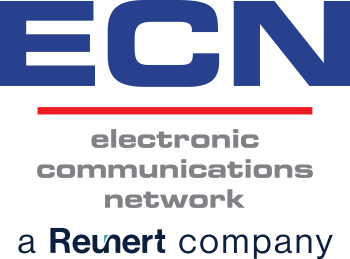In such a vast country where millions of residents live in remote areas while working in cities, it is no wonder that telecommunications is a priority for many South African citizens. The telecommunications industry – which includes fixed-line, wireless and satellite communications – is one of the fastest growing sectors in South Africa’s economy. Within Africa, South Africa has the most developed telecommunications network, with a strong focus on the mobile phone network which has grown in popularity – almost to the point of necessity – across the population spectrum.
Telecommunications
Fixed Lines Telecommunications
The fixed line telecommunications’ network has been dominated by parastatal, Telkom, who held the monopoly of South Africa’s fixed line services until the introduction of Neotel in 2006. With a relatively low rate of fixed-line usage – sitting at about 4.2 million in 2010 – the introduction of mobile phones in the mid-1990s and increased network coverage has seen this number decrease even further.
The Rise of Cellphones in Telecommunications
According to Nielson’s market research in Southern Africa conducted in 2011, more Africans have access to mobile phones than to clean drinking water. In just a decade, mobile phone use went from 17% of adults to 76% with more South Africans using mobile phones than radio, television or personal computers.
Data Prices for Telecommunications
Telecommunications operators have had to adapt the business model resulting in an increase in data use whereby before, the focus was more on minutes of call time. Instead of advertising ‘free minutes’ as a way to capture users, data bundles are the more sought-after commodity.
However, it seems the consumer has been on the losing end of the data business model with recent research revealing that South Africans are paying some of the highest data costs worldwide. According to mobile phone package tracker, Tarrific, which researched seven comparative countries’ data costs, South African prices are second highest after Brazil. In fact, South African data prices were, on average, 134% more expensive than the cheapest prices in the group, which also included India, China, Russia, Kenya and Australia. The high prices have prompted the #datamustfall which has received support from NGOs and politicians. (Read more about these and other Telecommunications Trends for 2017 here.
Internet Connectivity
The surge of smartphones into the market has seen a spike in the number of South Africans using internet which has propelled the need for faster internet. To meet this demand, there has been an increase in undersea data cables linking South Africa worldwide. This submarine fibre-optic cabling system is drastically increasing South Africa’s internet speed, putting in line with first-world experiences. MTN, Vodacom and Neotel are jointly building a 5 000km fibre-optic cable network connecting several major centres across South Africa with the first phase of the cable, linking Gauteng with KwaZulu-Natal, commissioned in 2010. (Read more about Business Grade Internet Access here).
In its vision to have 100% internet activity across the country by 2030, South Africa has implemented its National Broadband Policy entitled ‘SA Connect’. In 2013, the then Portfolio Committee on Communications (now Department of Telecommunications and Postal Services) stated that 33.3% of South Africans had internet access with attempts to reach 50% by 2016, 90% by 2020 and 100% by 2030. In his recent speech, Finance Minister, Pravin Gordhan, allocated R1.6 billion towards achieving the aims of this ambitious programme that seeks to address the availability, accessibility and affordability of broadband.
Conclusion
With connectivity becoming an ever-increasing necessity in the modern world, South African telecommunications will continue to expand, providing citizens with the necessary resources at affordable prices. It remains crucial for government and regulators to adopt pro-investment policies to sustain the momentum.
This article is brought to you by ECN. ECN offers a broad set of cost effective voice, data and hosted services to meet our customers ever growing technological needs. Our market leading voice solutions provide our customers with the option of replacing their existing voice service provider to substantially reduce their monthly telecommunications bill. Customers have the option of porting their geographic numbers to ECN and savings are achieved with competitive outbound call rates and lower infrastructure costs. Our Business Grade Internet Access products allow customers to deal with a single service provider for both their voice and data services, simplifying support and billing queries. Our hosted services complement our voice solutions and enable customers to move their physical PBX and call logging infrastructure into the cloud. This gives customers the flexibility and scalability they need in today’s ever changing business environment. Contact ECN today.

